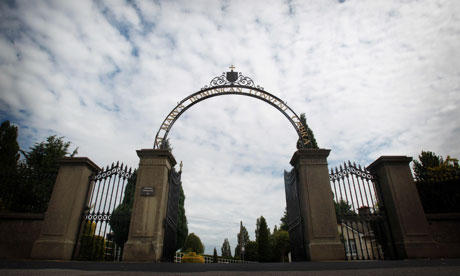Two weeks ago the Irish taoiseach, Enda Kenny, openly criticised the Vatican for what he said were attempts to frustrate the Cloyne inquiry into child abuse, thereby launching a row between Ireland and the Vatican that led to the Vatican recalling its Irish ambassador.
But why are the governments of historically papist countries suddenly at war with the Holy See?
The reason behind this is wider historical shift, namely our changing view of the nature of sin.
Acts such as child abuse that were once, just 20 years ago, perceived as terrible sin that needed be hidden and treated secretly, are nowadays valued as what they actually are: disgusting violations of the law.
This is the symptom of a major cultural change.
During the cold war, the Vatican was considered the moral arm of western values and, to some extent, a part of the anti-communist security system.
The need to shield Europe from the Soviet Union granted the Catholic church indulgence from civil authorities for the behaviour of some of its members and priests.
The fact that many communist regimes actively persecuted religion, and tried to defame Catholic priests and bishops as paedophiles, to some extent gave political justification to such indulgences.
Even if the public did not wilfully ignore these scandals, they allowed them to be handled in the shadow of dioceses.
But now communism, as an ideological and military enemy, is over.
Cultural paradigms have changed.
American strategic, military and financial monopoly is strongly and dramatically on the wane.
At the same time, the moral monopoly of the Vatican is deeply under scrutiny too, if not finished.
As a consequence, public opinions in the western world require the Vatican and Catholic bishops to treat sexual crimes for what they are, and to collaborate with the judiciary.
The first signs of the secularisation of sin came in 2002, from the US.
A sex abuse scandal in Boston, which eventually led to the resignation of Cardinal Bernard Law and large compensations for the victims, indicated that the old Vatican culture of secrecy did not work any more.
But at the time the Holy See either couldn't or didn't see the signs.
It tried to dismiss and downgrade the scandal as an "American problem", connected with the diversity of US catholicism and culture, and disconnected from the reality of worldwide catholicism.
Actually, what happened in Boston was only the start of the moral tidal wave that would hit the Vatican at global level in the years to come.
What we are seeing now is just the long tail of the scandals that emerged at the turn of the millennium: a very old problem, but perceived today in a totally different way.
That even the Irish government is now rebelling against the Vatican is a symptom of this big cultural change in state-church relations.
The Vatican's refusal to accept this new situation speaks volumes about its inherent culture of secrecy.
And it frustrates the courageous steps taken by Benedict XVI to fight the Curia's habit of shrugging off scandals as "plots against the church".
This struggle will go on for a long time, and it will be a painful one.
But if the Vatican does not come to terms with the secularisation of sin, the foreseeable perspective is a unilateral rewriting of the relations between some states and the Holy See.
If the lack of co-operation to fight the scandals continues, secular authorities will be tempted – forced, even – to act against the Vatican by infuriated public opinion.
And that would be a negative outcome for the west as a whole.






No comments:
Post a Comment